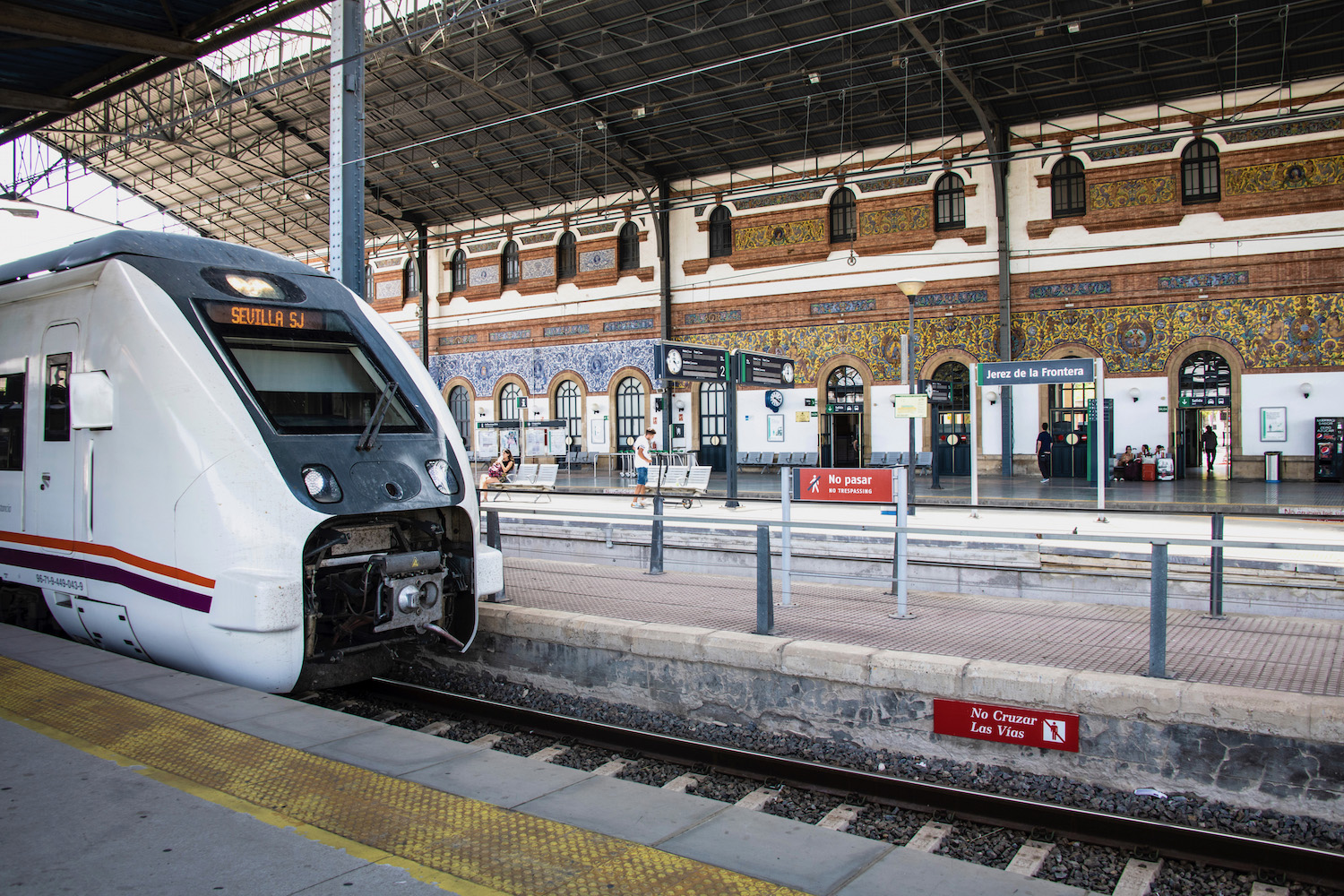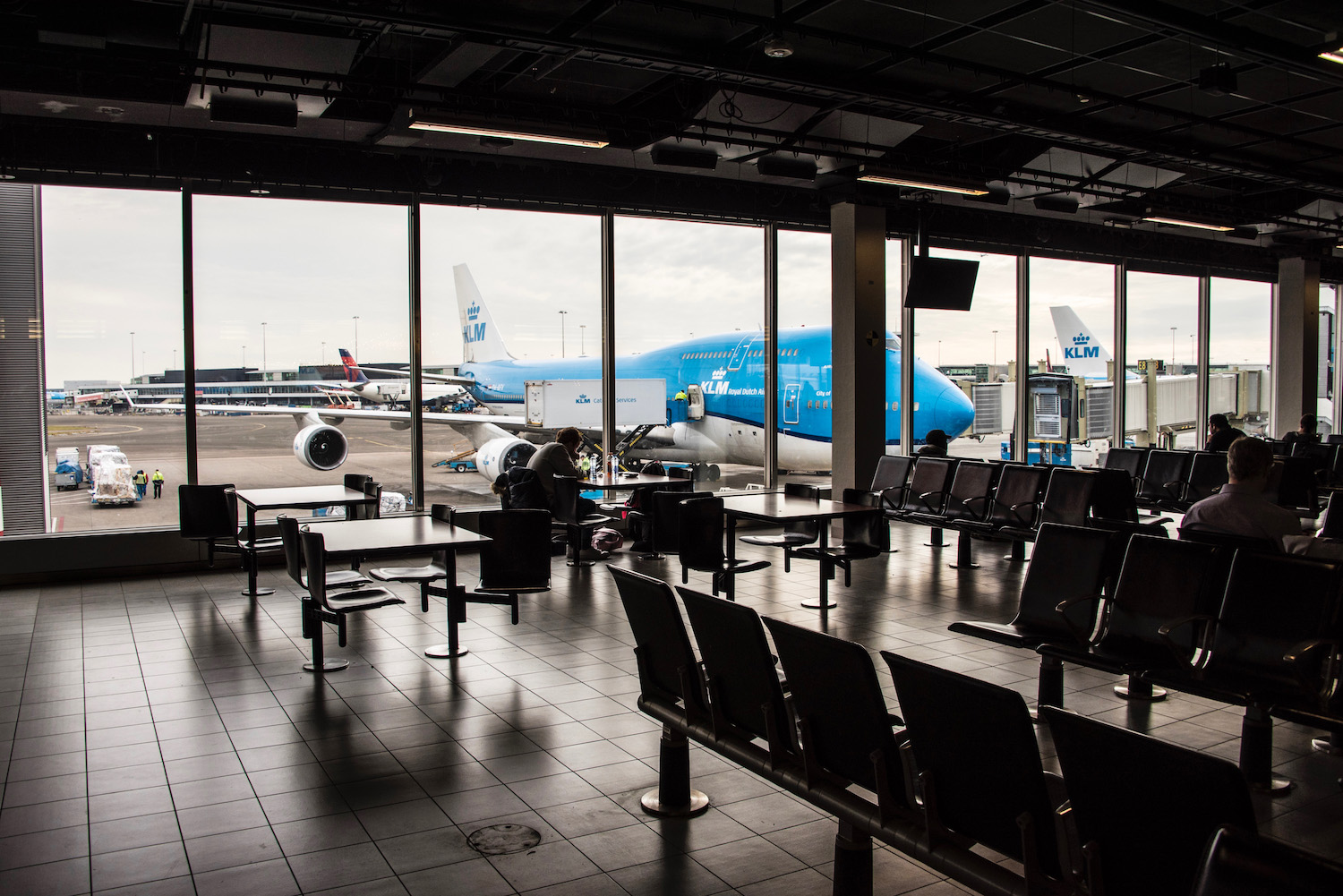The first time I went to Europe, I was excited about the prospect of train travel. Well, useful train travel—in most regions of my country, after all, trains are too slow to be practical.
And they mostly were—useful, this is. Well, so long as I didn’t use too many of them (I had a Eurail Pass on that trip), and since I wasn’t in that much of a hurry. Trains in Europe are relatively fast, but it still often takes half a day to travel between cities that appear close on the map.
Indeed, the more I’ve traveled in Europe over the past two decades, the more I’ve realized that flying within the continent does have its place. I hope you’ll continue reading for a more in-depth exploration of trains vs flights in Europe.
Why Countries in Europe Are Banning Domestic Flights
The discussion of trains vs planes in Europe has been in the news lately, as countries from Spain to France ban domestic flights. Some of this is presented as a “green” decision, as a way to move more quickly toward so-called “net zero” goals, but in reality the contribution of these flights to overall carbon emissions is negligible. Rather, these routes tend not to be profitable—and, except for passengers connecting to and from long-haul flights, they also aren’t convenient.
There are some advantages, of course. If your plane is delayed enough, you can claim TUI flight delay compensation, regardless of your destination within or outside the EU. This is definitely not the case if you’re traveling by train, as convenient as that may be otherwise. Below, I’ll lay out some of the other key differences between these modes of travel.
Key Differences Between Trains and Planes in Europe
Security
Don’t want to take off your shoes or remove your laptop from your bag? If you travel by train in Europe you generally won’t have to, although stations in certain countries do require some security precautions, such as walking through a metal detector. Flying in Europe is arguably even worse than it is in the US, with no option for TSA PreCheck!
Convenience
Another differentiator between trains or flights in Europe? Trains generally connect city-center to city-center, which means that the time you arrive in the city is more or less the time you arrive at your accommodation. Although there are some exceptions, most airports in Europe are far outside the city center, requiring a long secondary bus or train ride, or an expensive taxi or Uber.
Speed
I wish I could say that because trains in Europe are more convenient and less cumbersome, they’re always faster. But the reality is that this is not the case. Traveling between Madrid and Barcelona, or Rome and Venice? Intra-nation high-speed trains are probably the faster way. However, if you’re flying across the continent—from Lisbon to Zurich, or from Copenhagen to Nice—you’d be a fool to take the train.
Cost
Likewise, the difference in cost between trains or planes in Europe is not always as dramatic as you might think. This is especially the case with the Eurail Pass, because due to all the rules and regulations involved, it isn’t always cheap or even a good value. Conversely, if you buy plane tickets in advance (or especially if you use miles), you may actually pay less than you would for a train.
Comfort
Airplane seats only get smaller as the years go by. And in Europe, “business class” is usually just economy class with the middle seat blocked out. On trains, meanwhile, standard seats tend to be quite roomy and comfortable; upgrading to a more private cabin (or on overnight trains, a sleeper compartment) is often not dramatically more expensive.
The Truth About Eurail Passes
As I touched on earlier, the Eurail Pass is something I see as less and less of a good deal, the more time that passes. For one, you often have to commit only to using the pass for a certain number of days during the period of its validity. This requires a certain amount of pre-planning, which can take away from the spontaneity a rail pass is supposed to afford. Additionally, I encourage you to check the prices—Eurail Passes aren’t cheap!
Indeed, even if you disregard the debate about trains vs flights in Europe entirely, there’s another factor to consider. Railway companies in Europe, especially (though not exclusively) within countries, often run promotions on tickets, which can see them be much cheaper per segment than even the cheapest Eurail Pass. So do keep this in mind!

Other FAQ About Trains and Planes in Europe
Is it better to travel Europe by train or plane?
The answer to this question honestly depends on your itinerary. If you’re traveling a short distance or on a route served by a high-speed train like France’s TGV or Italy’s Italo, train is the best way to go. However, for cross-continent trips where time is of the essence, plane is a better choice.
Is it cheaper to train or fly through Europe?
Once again, this depends. If you choose to fly but book your flight relatively far in advance, it’s possible and maybe even likely that you’ll pay less than you would for a train ticket. However, certain routes (especially business-heavy ones like Paris-London) are always priced high; if you wait until the last minute, this can also drive up the cost.
How easy is it to travel around Europe by train?
Traveling around Europe by train is easy once you get the hang of it, but even the most liberal Eurail Pass isn’t the “hop-on, hop off” joyride it’s purported to be. Realistically, you’ll need to incorporate some forethought into your journey in order to have an easy time of it.
The Bottom Line
When it comes to trains vs flights in Europe, there’s not a one-size-fits-all Europe. If you’re backpacking around the continent and have more time than money, traveling primarily by train (and—carefully—using a Eurail Pass) can mean you don’t have to board a single train, assuming you play your cards right. On the other hand, if you’re older and care more about being efficient than economical, intra-Europe flights will likely be a key part of strategy for getting around the continent. Need personalized help planning your next trip to Europe? From west to east, and from Sarajevo to Stockholm, consider hiring me as your Travel Coach!







